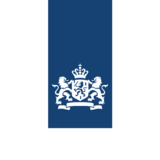Community / Land projects / Nigeria Resilient Cocoa Farmers Programme
Nigeria Resilient Cocoa Farmers Programme

€0
12/21 - 12/23
Completado
This project is part of
Implementing Organisations
Donors
Data Providers
General
The cocoa value chain in West Africa is at risk for CSR violations such as child labor, deforestation and low income. Often small cocoa farm households find themselves in a situation where they are unable to afford basic necessities of life, like food, housing and shelter. Farmers get trapped in a vicious poverty cycle of low productivity, market gluts, lack of access to credit and production inputs, all resulting in low income. This often fuels the occurance of other CSR risks and impacts such as deforestation and child labor. As farmers get desperate to increase their production and improve household earnings they resort to cutting down natural forests or preserved areas in order to expand their cocoa farms and/or sell fire wood. This again will lead to adverse impacts such as climate change (increased greenhouse gas emissions due to loss of the trees’ carbon storage function), desertification, soil erosion and land degradation, flooding, and loss in biodiversity (fauna and flora). Further, due to insufficient funds to send their children to school and to hire external labor for support on the farm during labor-intensive periods under-age children are put to work on the farms, or engage in other income earning activities such as street hawking and housekeeping. Thereby especially concerning is work which is classified as “hazardous” or “worst forms” of child labour. Hazardous work includes e.g. working with pesticides, or tasks carried out under conditions that are particularly risky for children, such as work for excessively long hours or in high temperatures. Worst forms of child labour comprise slavery, trafficking, or debt bondage. All of these activities negatively affect children’s physical and mental development and interefere with their education and ultimately their future opportunities. In order to obtain a clear picture of the current situation and fully understand the underlying reasons for the occurrence of these risks the partners have embarked on a project with RVO to conduct an in-depth risk assessment within their Nigerian cocoa supply chain. The targeted beneficiary group are 2,400 small-scale cocoa farmers and their families in Cross River State in the South East of Nigeria. Through the planned in-depth risk assessment the partners expect to gain an improved understanding of these supply chain risks and therefore will be in a position to address these issues in a targeted and impactful manner.
Objectives
The interventions to be conducted for the in-depth risk assessment on the 3 identified supply chain risks low income, child labor and deforestation include a stakeholder assessment, a Living Income GAP assessment, a household survey, a child labor assessment and vulnerability assessment, development of a sustainable diversification strategy (taking into account market potential, income potential, farmer adoptiveness, swat analysis), and a deforestation risk analysis. The methodologies applied for the data analysis comprise the Simpson Index of Diversity (SID), the anchor method and possibly other approaches for the Living Income assessment. In addition to the data analysis data collection represents one of the key components of this project. In order to gather the required information for the envisaged analyses project activities will include identification, interviews and workshops with the primary, secondary, direct and indirect stakeholders. Depending on the stakeholder group these interviews will be conducted in focus groups and/or (semi-)structured via questionnaires. The process will further comprise consultations with communities and cooperatives. In order to ensure quality data and information are captured a technical expert team will conduct spot visits to support and supervise the local team of the imlpementing partner.



